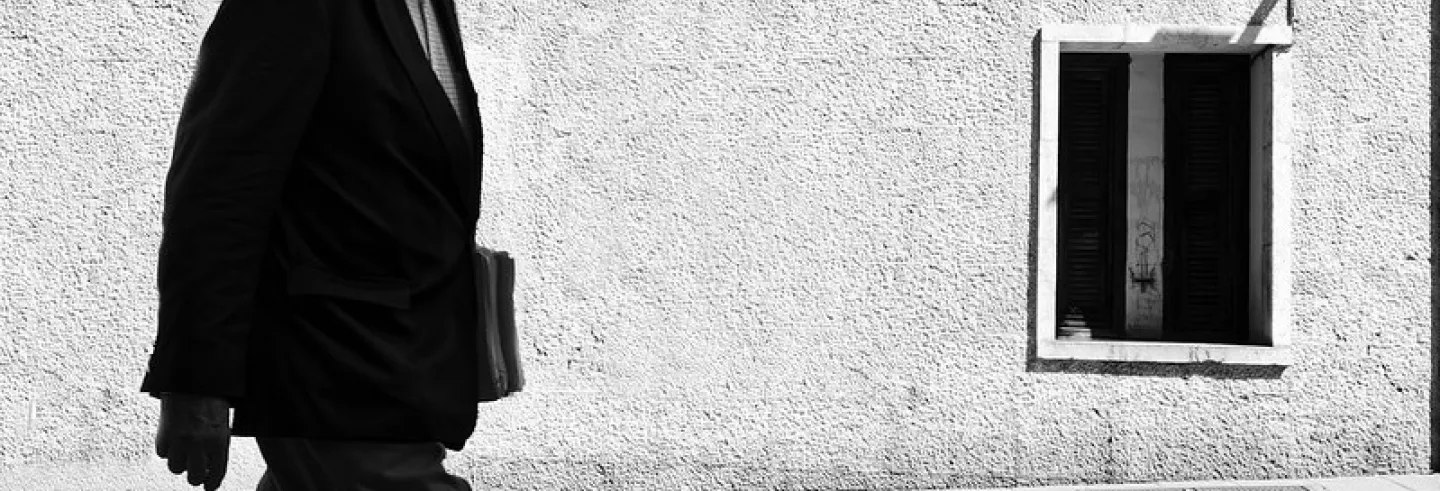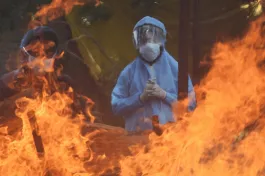With the dissolution of the Soviet Union in 1991, followed by the sad passing of John le Carré nearly 40 years later, we have probably lost the cold war espionage story forever. Confined to my home by the recent rains in Chennai, I undertook a fond—and as always, awe-struck—re-re-…re-reading of the entire Smiley opus. Neither custom nor age interfered the least bit with the feelings of pleasure and wonderment which this great writer’s work always provoke in me, as in countless others. After the reading glut, I turned to YouTube, where I watched several of le Carré’s television interviews, given by him over the years. What an extraordinarily charming man, apart from being a keeper of our times’ conscience!
The net effect of all of this was to create a feeling of genuine sadness and loss, such as presides over the passing of an old and deeply-admired friend, and all this quite in keeping with the dismal rain without. I badly needed to snap out of the mood, and my escape route was to try my hand at a spot of spoofing—a small attempt at mimicking the Master’s prose. An audacious thought, but I told myself he wouldn’t have minded: it’s such an inconsequential thing. Apart from which, they do say, don’t they, that imitation is the sincerest form of flattery? So I put together some ingredients of Smiley’s love of German poetry and what J. B. Priestly described as “an atmosphere of chilly hell” in The Spy Who Came in From the Cold and a few other of the great man’s signature mannerisms to come up with the ensuing tiny teaser. (Chennai, where I come from is, after all, the home of the Mini Tiffin.)
I put together some ingredients of Smiley’s love of German poetry and what J. B. Priestly described as “an atmosphere of chilly hell” in ‘The Spy Who Came in From the Cold’
Publishers have been commissioning fresh work on the characters created by Conan Doyle, P. G. Wodehouse, Agatha Christie and Ian Fleming. It’s only a matter of time before they do that with John le Carré. In anticipation, I have written a prologue to a novel to be titled The Spy Without a Country. Any of my readers (if such exist) should feel free to complete the rest of the novel. I am quite prepared to split the proceeds, when the book is published, fifty-fifty with my co-author.
*
The Spy Without a Country
Prologue
Den Himmel überlassen wir/ Den Engeln und den Spatzen.
[Heaven we leave to the angels and the sparrows.]
--Heine
Kimovsk on a cold night hid its secrets well. The snowflakes falling in a low, curving spiral were unreal, synthetic; less, from habit of thought, a product of nature than a product of the Politburo. Leningrad Street almost empty now. The only sound to be heard the occasional scraping of leaden feet dragging homeward after a late night’s shift, a funeral march, a mournful scuffling dirge to the departed souls of Karl Marx and Ulyanov Lenin. And soon not even that. At the junction of Leningrad Street and Pavlov Square, Exec had told him. Third lamp post from the left, by the gnarled fir. The smell was strong in his nostrils of poverty and the corruption of power. One, two, three. He took off his gloves, looked up and down the street. Nobody. Not a sound. Kimovsk was hiding its secrets well. He pressed the small knob at the base of the lamp-post with his foot. A tiny aperture revealed itself about eye-level. Those awful little bleeders inventing games for themselves in the Hackney slums, he thought, with sudden and painful nostalgia. He smiled grimly, though he could have wept for his lost innocence. He inserted a gentle, probing finger into the opening. All it encountered was a thin patina of dust. The microfilms of the Vasilaav papers, Exec had told him. His last assignment, he’d been told. He understood now. Everything, and all at once. He recalled with murderous fury Exec’s bloodless little face, his pedantic little voice, his dreadful little cough, and perceived with sudden clarity the last vengeance of a dying man who would not forgive the dissolution of Empire, the betrayal of its traditions, the treason it had visited upon its standard-bearers. “Sod,” he whispered, in a voice thick with hatred and comprehension.
For a large man, he whirled around surprisingly quickly in response to the muted but persistent scraping behind him. A duffel-coated figure with a parchment-white face. Was this to be a night of unreality, of appearances, of deception, of the muddled manifestation of obscure objects befuddlingly illuminated by the false light of a street-lamp struggling against the powers of darkness? What was that Goethe wrote in his letter to Jacobi? Something about how light is "the simplest, most undivided, most homogeneous being that we know; confronting it is the darkness". An all-but-audible whisper nearly passed him by: “The kettle is on the stove.” With the self-consciousness of the fool that has no choice, he replied: “Send for the fireman.” There was a barely perceptible nod of the head. The man’s mouth worked uncontrollably, but the words would not emerge. A fumble, a shuddering sigh, and suddenly the figure in front had pitched forward. Even as the larger man caught him in his arms, he heard the single word “Petroshkin” squeezed out in an agonized whisper. The next moment, he was looking at a small and shapeless huddle, an apologetic bundle of clothes at his feet. He noticed a trickle of something dark and sticky oozing sluggishly out of a tiny hole in the little man’s left shoulder. He stared at it for some seconds, petrified as a statue, eyeless in Kimovsk.
He had worked for what he thought was the good, and the result was before him. There was little enough of life left to him, he knew, and nothing of love – unless love be the delusion of finally abandoning the good for what portion survived in him of the tattered remnants of some dimly remembered notion of the right. At last he stirred. Again he felt the fear, the hatred, the anger. “The expropriators”, he thought inconsequentially, “shall be expropriated.”
That was when the firing started.










